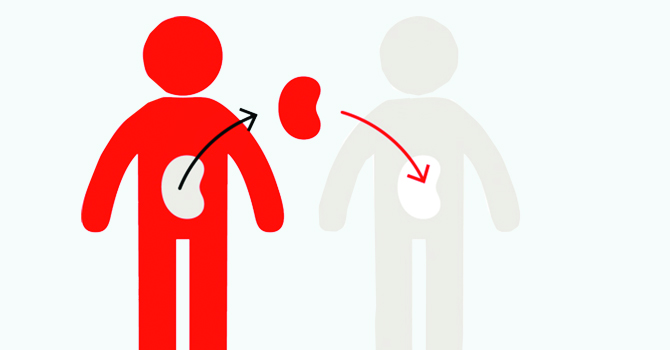Uncertainty looms as COVID-19 halts organ transplant

By Nayak Paudel
Kathmandu, Sept. 3: The COVID-19 pandemic has brought organ transplants in hospitals in Nepal to a halt and with growing new cases every day, the uncertainty regarding resumption of organ transplant services continues.
More than half a dozen hospitals providing different organ transplant services have suspended transplants following rising concerns about the health of the patients after transplants.
While it has already been months since transplants were suspended and the authorities are unsure when to resume the service, patients requiring transplants have been awaiting the decisions.
“Doctors have said that my son requires kidney transplant as both of his kidneys have become dysfunctional. But the transplant service has been halted and we don’t know when it will resume,” said Sadananda Bimali, 65, whose son is undergoing dialysis at Nobel Medical College in Biratnagar.
According to the health experts, the recipients of the new organ need to take immunosuppressant drugs for the body to work against the rejection of the grafted organ. Since the immunosuppressant medications weaken the immune system, such patients must avoid infections.
“There is risk in the patient’s health if transplant is delayed but the risk is higher if we conduct transplantation in the midst of COVID-19 pandemic. Organ transplantation has been suspended almost globally,” Dr. Prem Raj Gyawali, executive director at Human Organ Transplant Centre, told The Rising Nepal.
The Ministry of Health and Population, during the early days of increasing COVID-19 transmissions in Nepal, had directed health institutions to suspend all services including routine operations. As transplant service requires routine operations, it was also suspended.
“Recipients have higher chances of suffering from infections or other illnesses since their immune system is weakened due to the medication. The recipients will also have higher chances of being infected with the novel coronavirus and saving such patients is very difficult,” Gyawali added.
As per the officials at the Department of Health Services (DoHS), a total of 242 organ transplants, kidney, liver, lung, heart and pancreas, among others, were conducted in the previous fiscal year 2019/20. Among the 242 cases, 107 were conducted in three government hospitals, Human Organ Transplant Centre, Bir Hospital and Tribhuvan University Teaching Hospital, and 135 were conducted in other hospitals such as Grande International Hospital, Sumeru Hospital and Colleges of Medical Sciences.
Human Organ Transplant Centre alone had conducted 132 kidney transplants during fiscal year 2016/17 as dialysis and kidney transplants were made totally free. Kidney transplant is the most common organ transplant.
“People unable to afford services for kidney transplant are provided full support from the government. With economic support and quality service from the hospitals, the number of individuals going abroad for transplant has declined,” said Roshani Laxmi Tuitui, director at Nursing and Social Security Division of DoHS.
Only two individuals are said to have undergone transplant abroad last year.
Meanwhile, officials too are uncertain of when the service will resume. “The cases of COVID-19 are increasing, thereby increasing the chances of further transmission of SARS-CoV-2. The Health Ministry’s decision to stop organ transplant was necessary but the ministry is unsure when to resume the service,” said Tuitui.
Recent News

Do not make expressions casting dout on election: EC
14 Apr, 2022
CM Bhatta says may New Year 2079 BS inspire positive thinking
14 Apr, 2022
Three new cases, 44 recoveries in 24 hours
14 Apr, 2022
689 climbers of 84 teams so far acquire permits for climbing various peaks this spring season
14 Apr, 2022
How the rising cost of living crisis is impacting Nepal
14 Apr, 2022
US military confirms an interstellar meteor collided with Earth
14 Apr, 2022
Valneva Covid vaccine approved for use in UK
14 Apr, 2022
Chair Prachanda highlights need of unity among Maoist, Communist forces
14 Apr, 2022
Ranbir Kapoor and Alia Bhatt: Bollywood toasts star couple on wedding
14 Apr, 2022
President Bhandari confers decorations (Photo Feature)
14 Apr, 2022











